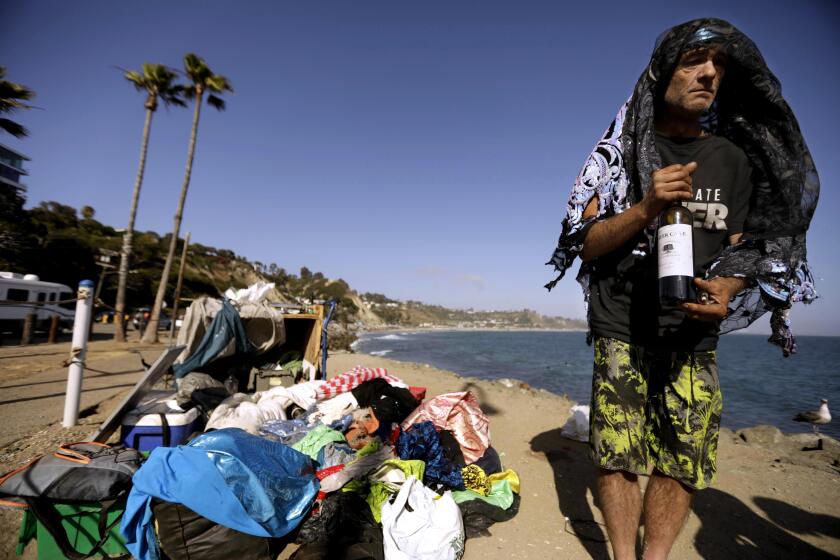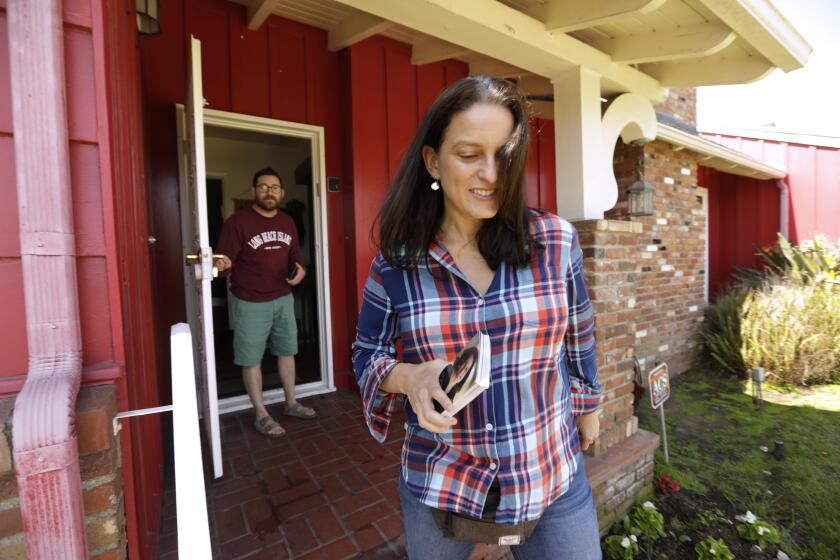Housing, homelessness and police dominate a race for City Council in Hollywood

- Share via
Los Angeles’ Echo Park Lake was thrust into the national spotlight last year, with police arresting scores of demonstrators as they protested the removal of homeless encampments from the park.
Now, the politician who pushed for the clearing of those encampments is on the ballot. And among the five L.A. City Council members seeking reelection on Tuesday, he is by far the most likely to face a second, bruising runoff contest this fall.
City Councilman Mitch O’Farrell, 61, faces a quartet of challengers who span the ideological spectrum — three of them campaigning on his left and a fourth running somewhat to his right. All four have made the race a referendum on O’Farrell’s record, denouncing his handling of homelessness not just in Echo Park, but in Hollywood and other parts of the district.
On O’Farrell’s right is Steve Johnson, a sergeant in the Sheriff’s Department who wants to add 1,500 officers to the Los Angeles Police Department. Johnson criticized O’Farrell over cuts to police staffing and the rising cost of projects built using Proposition HHH, the $1.2-billion homeless housing bond.
Running on O’Farrell’s left are community activist Albert Corado, political aide Kate Pynoos and Hugo Soto-Martinez, a labor organizer with the hotel workers’ union. All three assailed O’Farrell over the clearing of Echo Park Lake.
O’Farrell has portrayed the Echo Park operation as a success, one that restored the park and the public’s access to it. He said the encampments, which were mostly left alone during the COVID-19 pandemic, were plagued by violence, drug use and dangerous conditions.
“We returned the crown jewel of the park system to the community for everyone, housed or unhoused, to enjoy,” O’Farrell said at an event in April. “That’s what parks are for.”

Soto-Martinez offered a sharply different assessment, calling the operation “a failure by all metrics.” He decried the massive response by police officers, who arrested journalists and fired projectiles at protesters. He also pointed to a UCLA report that found that only a small fraction of the park’s homeless residents received permanent housing.
Apathy and cynicism are as common as homeless encampments as election day in Los Angeles nears.
“I’m surprised that the council member continues to defend his tainted legacy,” said Soto-Martinez, an organizer with Unite Here Local 11, which has spent nearly $300,000 on his behalf.
Soto-Martinez, Pynoos and Corado have promised to repeal the city’s anti-camping law, which allows council members to designate specific libraries, schools and sidewalks around parks as off-limits to encampments.
All three have argued for fewer police officers, with at least one candidate seeking the LAPD’s outright elimination. All three spoke out last week when O’Farrell backed a new measure to bar encampments within 500 feet of every school and day-care center.
Pynoos, who spent two years advising Councilman Mike Bonin on homelessness, called the clearing of Echo Park Lake one of the park’s “darkest hours.” Barring tents outside schools, she said, will push homeless youth further into the margins without offering new resources.
“If Mitch truly wanted to help L.A.’s most vulnerable youth, he’d be focused on making it easier, not more difficult, to regain personal stability,” said Pynoos, a Hollywood resident, in an email to supporters.

O’Farrell, running for his third and final term, said his office is working to bring an array of housing options to those who are living on the streets. The district now has two “tiny home” villages — one in Westlake, another in Echo Park — and a third is underway.
This year, O’Farrell signed off on a plan to acquire two four-story apartment buildings in his district to serve homeless Angelenos. A similar development is planned just north of the lake, he said.
When Echo Park Lake was cleared out, scores of people were moved into hotel rooms and other locations. Of the 183 who were initially identified as being sheltered, 77 were still in some form of temporary housing last month, an official with the Los Angeles Homeless Services Authority said Friday.
Another 12 are in permanent housing, the official said.
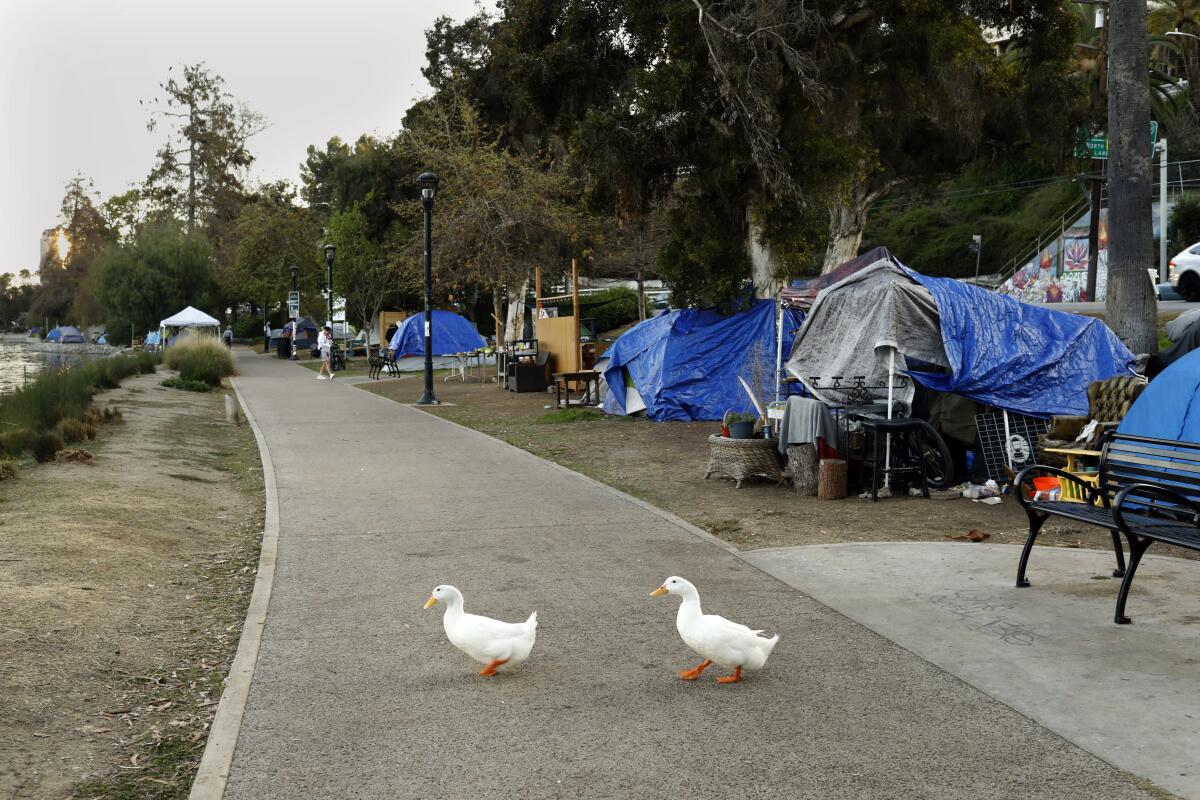
O’Farrell, who lives in Glassell Park, said outreach workers will keep offering housing as more facilities open up. “Our mission is to get everyone under a roof,” he said.
Still, the criticism of O’Farrell has not been limited to homelessness.
Get the lowdown on L.A. politics
Sign up for our L.A. City Hall newsletter to get weekly insights, scoops and analysis.
You may occasionally receive promotional content from the Los Angeles Times.
Soto-Martinez, running with major support from L.A.’s chapter of the Democratic Socialists of America, said the incumbent has done too little to keep housing affordable for the district’s working families. The East Hollywood resident hit on that theme in a video that criticized O’Farrell’s approval of a 26-story apartment tower on Sunset Boulevard in Hollywood.
The 200-unit project was the subject of legal challenges from critics who said it would replace a cultural and historic asset — the shuttered Amoeba Music store — and offer too few units of affordable housing.
“I’m outside of what used to be Amoeba Records, which thanks to my opponent, is about to be knocked down and turned into more ugly, luxury real estate,” Soto-Martinez says in the video.
Soto-Martinez, 39, criticized O’Farrell for designating only 10 of the 200 units for low-income renters. He also highlighted the fact that employees of the project’s developer donated $15,000 to O’Farrell over seven years.
O’Farrell called the Sunset tower a good project, one that would not result in any displacement, since housing was not on the site. He said his office worked with Amoeba’s owners to find a new location nearby. And he argued that rejecting the tower could have provoked a legal challenge under state housing law.
The developer also provided $2.5 million to pay for additional affordable housing in Hollywood, O’Farrell said.
In recent weeks, Soto-Martinez has picked up the endorsement of Councilwoman Nithya Raman and school board member Jackie Goldberg, who once represented the district. He and Pynoos are both backed by Bonin.
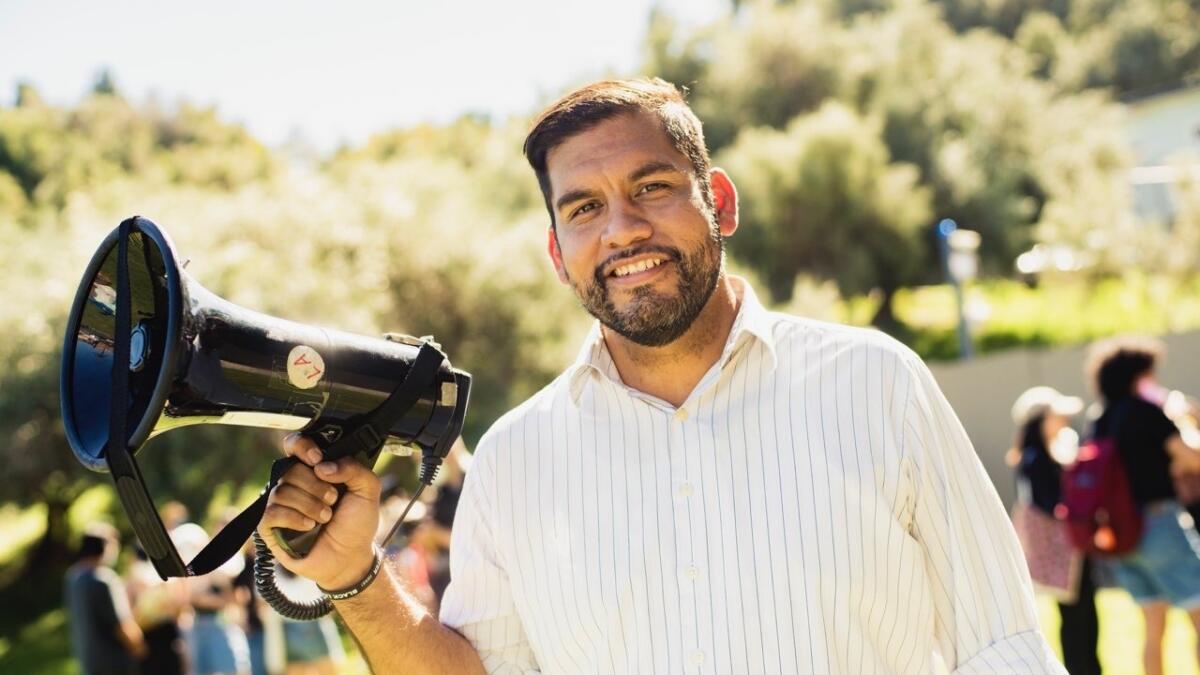
Pynoos, 34, is touting support from the California Women’s List, the National Women’s Political Caucus and former U.S. Rep. Katie Hill. And she is billing herself as a “practical progressive,” someone who helped more than 80 homeless people in Venice find permanent housing.
O’Farrell has highlighted his own housing record, announcing last week that 15,000 homes have been approved, financed or completed in his district since he took office in 2013. Of that total, about 4,000 — or 29% — will have restrictions on the amount of rent that can be charged, he said.
Real estate interests — the California Apartment Assn. and construction trade unions — have lined up behind O’Farrell, spending more than $1.1 million on independent campaigns promoting him and attacking Soto-Martinez.
Those ads target Soto-Martinez’s description of himself in a Democratic Socialists of America questionnaire as a police abolitionist and a video where he called for police officers who patrol the region’s bus and rail system to be replaced by unarmed “transit ambassadors.”
“Remove the officers who keep our public transit safe at night? No, Hugo,” one attack ad says.
Soto-Martinez has shot back by putting the spotlight on O’Farrell’s allies, warning his supporters that “big real estate” is trying to scare away voters. “Let’s show them they can’t buy this election,” he said.
Candidate Sam Yebri is taking aim at opponent Katy Yaroslavsky’s work as a City Hall lobbyist. She says the real estate industry is pushing hard for Yebri.
At the same time, Soto-Martinez has tried to reassure voters, saying that being an abolitionist doesn’t necessarily mean wanting to get rid of the entire Police Department.
Those types of remarks bother Corado, whose sister Melyda Corado was fatally shot by police during a gun battle with a suspect at a Silver Lake supermarket in 2018.
Corado, 33, said abolition — which he supports — is about ending law enforcement agencies and replacing them with programs that address poverty, the lack of affordable housing and food insecurity, among other things.
“The very definition of abolition in this context is about getting rid of the Police Department,” he said. “You can’t redefine a word just because you want it to fit your political message.”
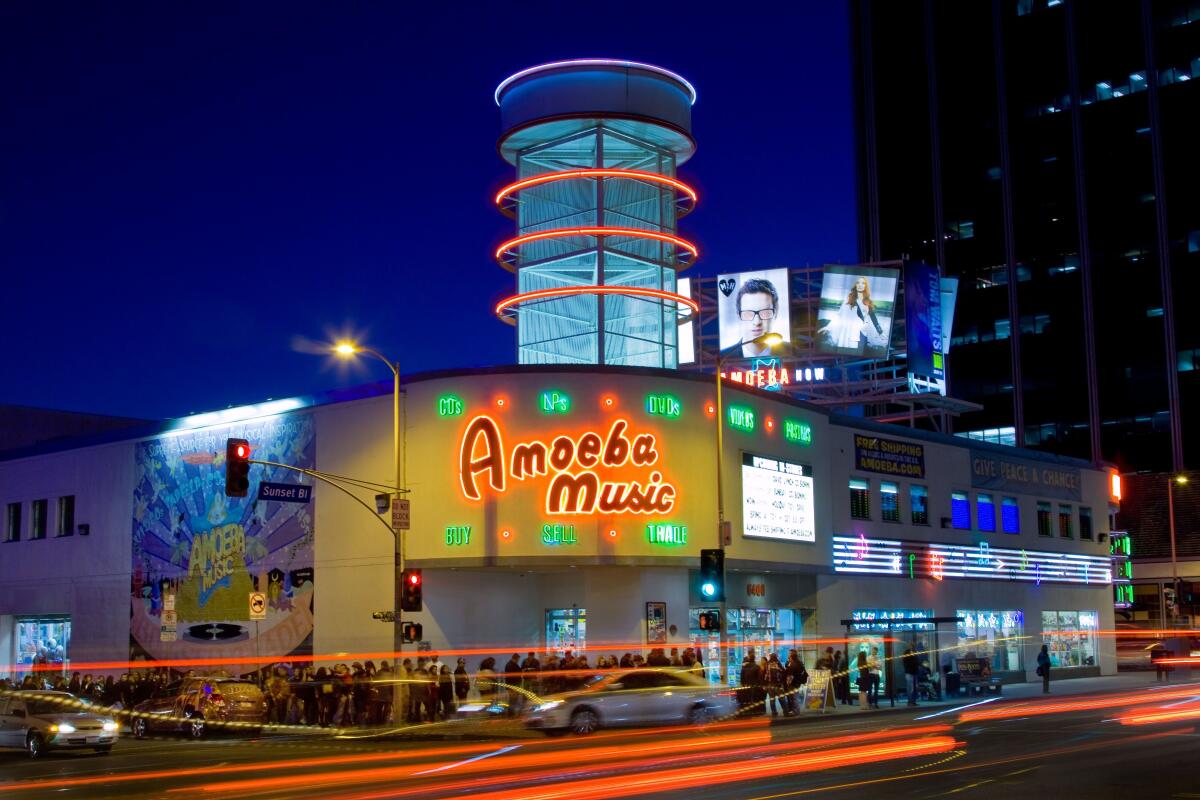
Corado, who lives in Historic Filipinotown, has been endorsed by Melina Abdullah, a co-founder of Black Lives Matter-Los Angeles. He is heavily involved with the People’s City Council, an activist group that has protested outside the homes of O’Farrell and other elected officials.
Corado said the group formed after the council voted against an across-the-board evictions ban in April 2020.
“We were a bunch of random activists who were so angry about him voting that way that we started protesting outside of his house,” he said. “He’s the reason the People’s City Council even exists.”
O’Farrell did vote for a moratorium on evictions in cases where a tenant’s inability to pay was caused by COVID-19, which won’t expire until July 2023 at the earliest. But he said he balked at the more expansive ban after receiving warnings from the city’s lawyers, who said it ran afoul of state law. Those attorneys said more sweeping action could put the city at risk of $1 billion in damages.
“We protected those whose incomes were affected by the pandemic, and we did that the right way,” he said.
More to Read
Sign up for Essential California
The most important California stories and recommendations in your inbox every morning.
You may occasionally receive promotional content from the Los Angeles Times.
